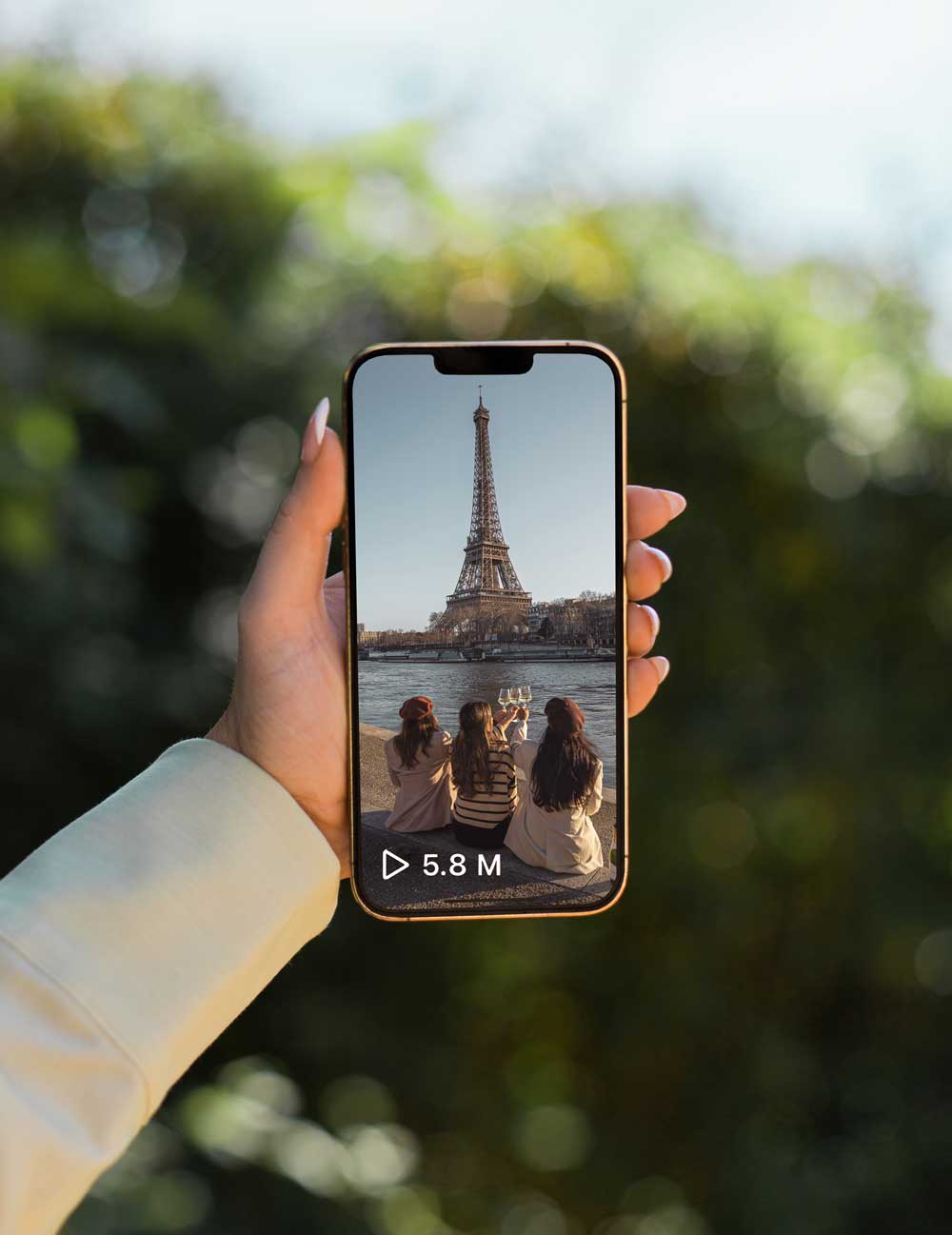Ultimate Guide to Contracts as a Content Creator & Influencer
There’s nothing more exciting than receiving your first paid campaign as a content creator or influencer. That is until you receive a daunting 24-page contract to review and sign. Often these lengthy contracts are filled to the brim with confusing legal jargon that may as well be another language – especially if you’re new to the creator industry.
This guide will help you navigate through the complexities of content creator contracts, helping to ensure your rights are protected and that you’re not signing your life and firstborn away when working on your next dream brand partnership.
Keep reading to understand the basic components of social media influencer contracts. Including easy-to-understand definitions for key terms and phrases that are often found within these legal documents.
We will also be sharing email templates so you can confidently negotiate the terms of a contract. It’s important to remember that when you first receive a contract, it is not final. Sometimes brands will make you feel like it is non-negotiable, however, that is certainly not the case.
Every contract is negotiable and this guide will give you a better understanding of how to protect yourself and your social media content. We have also included an example influencer contract template which you can use to send to brands.
This guide is a collaborative effort by Sophie (www.lawwithsophie.com), an experienced corporate lawyer and content creator based in London, and Kelsey (@kelseyinlondon), a full-time content creator with over 8 years of experience and more than 300 brand campaigns (and contract negotiations) under her belt. Together, we bring a wealth of knowledge and a shared passion for empowering content creators, especially women, to protect their rights and navigate this industry confidently.
TABLE OF CONTENTS
What is a Clause?
Scope of Work / Deliverables
Contract Term/Duration
Usage Terms
Intellectual Property Rights
Perpetuity
Exclusivity
Usage versus Exclusivity
Approval Process & Revisions
Reshoot Clause
Payment Terms
Late Payment Clause
Early Termination & Kill Fee
Indemnities / Liability Clauses
Example Contract Template
Email Templates for Negotiations
Key Points
Always review a contract on a computer, not your phone
Use the “find” feature to quickly locate key terms like usage, perpetuity & exclusivity
The process of agreeing on a contract is a negotiation between you and the brand
You can ask brands to add or remove clauses to the contract
If you don’t understand something, ask the brand to provide an explanation
Seek professional legal advice if you are unsure about something
Disclaimer:
Please note: This is general advice and may not apply to everyone. Please seek professional legal advice if you are unsure about anything. No liability is accepted for the advice given.

Guide for Reviewing Content Creator Contracts
Useful tip!
If you are struggling to understand what something means in a contract, try using ChatGPT to get an easy to understand explanation. You can upload the contract file/PDF and use the following prompts:
“Can you provide a summary of this contract?”
“What are the main points covered in this contract?”
“Can you explain what clause [X] means in this contract?”
What is a Clause?
A clause is a specific provision or section in a contract that outlines particular terms, conditions, or obligations of the parties involved.
As a content creator, you are allowed to ask a brand to remove a specific clause – especially if you haven’t previously agreed to these terms.
You can also ask a brand to add additional clauses to the contract. Throughout this guide, we have included a few example clauses we suggest you have added to all contracts to protect your content, time and money.
Check out these email templates for asking a brand to remove or add a clause.
Scope of Work / Deliverables
The scope of work outlines what is expected from you in the collaboration. This is also often referred to as the “deliverables”.
This includes the type and amount of content you need to create, specific platforms where the content should be posted, the content length and any particular themes or messages the brand wants you to convey. E.g. “1 x 30-second Instagram Reel + 3 Instagram Story Frames”.
Typically the deliverables should be mutually agreed upon before you receive a contract. This is why it’s important to check this section and make sure the scope of work includes the same amount of content pieces you discussed via email.
Contract Term/Duration
The term of a contract is essentially how long the contract is “live” for – aka how long both you and the brand are “on the hook” to comply with the obligations set out in it.
Generally, for one-off brand marketing campaigns, the term should be quite short (no longer than a few months) and should provide that the contract will terminate pretty soon after the deliverables have been posted.
Usage Terms
Usage is when a brand would like to use your content, usually in a certain manner and for a specified amount of time.
There is a huge amount to say about usage, but the important thing to note is that brands should ALWAYS be paying a separate fee to content creators for usage.
It’s important to keep a close eye on any contracts you are sent to ensure that a brand doesn’t sneak in any usage terms so you don’t inadvertently give them usage to the content you’ve worked hard to create.
You should always ask the brand if they want usage for your content and mutually agree on a fee before you receive your contract.
Make sure to ask a brand where/how they plan on using your content, and for how long. For example, they may want to use your video as a TikTok paid advertisement for 30 days
Types of Usage Terms
Paid Usage
Paid Usage refers to the use of your content in paid advertising campaigns. This includes online ads, social media ads, printed ads (in magazines/newspapers) & television commercials.
Organic Usage
This is when a brand uses your content without paid promotion. Usually, this refers to social media posts on a brand’s page with no additional paid boosting.
Marketing Usage
This refers to your content being used on a brand’s website, email newsletters and/or blog without any additional advertising spend. Brands make a lot of money using your content in marketing so it’s important to charge a separate fee for this.
Intellectual Property Rights
When reviewing a contract, you always need to make sure that you retain full intellectual property and ownership rights to your content and that the brand cannot use your content other than as agreed for the scope of your deliverables.
What are Intellectual property rights (IPR)? They are legal protections that grant creators exclusive control over the use and distribution of their content.
Often brands will sneak a clause that they will own the intellectual property rights into your contract. If they own the IPR to your content they can basically do whatever they want with it.
My advice is to open the contract document on your computer, use the “find” feature and search for “intellectual” to easily find this section.
❗️ If there is any mention of a brand owning the IPR to your content, ask them to remove this clause and add the below clause instead:
All intellectual property and other property rights created by the Creator during the course of/and in connection with providing services shall, upon creation, vest in and belong to and be the absolute property of the Creator in perpetuity. Any use of these materials—or the Creator’s image, name and likeness—outside of the Creator’s/client's own social media channels, will be contingent on the express confirmation by the Creator and shall be addressed on a case-by-case basis. Equally, any paid media spend added to any of the published materials will be contingent on the express confirmation by the Creator, and shall be addressed on a case-by-case basis.
Perpetuity
The forbidden “P” word! Ok, it’s not actually forbidden, however, the word “perpetuity” is a major red flag in contracts.
Some brands may ask to buy usage rights to your content “in perpetuity” which simply means “FOREVER”.
❗️ DO NOT EVER SELL YOUR IMAGE OR VIDEO RIGHTS FOR “IN PERPETUITY” ❗️
Why? Because you never know what might happen in the future! For example, say a brand buys the rights to your image and 5 years down the line the CEO is involved in a massive scandal and the brand keeps using an image of your face to advertise their products… now your face is forever linked to the brand and the scandal.
In most cases, brands won’t actually use your image or video longer than a year anyway so if they ask for in perpetuity rights, just simply say you only offer usage rights for a maximum period of 1 year only and are happy to review if they still want to use it past the 12 months for an additional fee.
It’s important to note that paid usage can affect exclusivity and vice versa. Learn more about this here.
Exclusivity
Exclusivity in the context of content creator contracts means when a brand/company requires you to work with them, and only them (none of their competitors), for a certain period of time.
For example, you might see a term in your contract that says something like “[Creator] agrees that they will not undertake any similar services to [services] with other alcohol brands”.
Exclusivity is something that should be discussed before receiving your contract, however, some brands are sneaky and try to include this without you noticing.
This is why I always recommend reviewing a contract on your computer. Open the file and use the “Find” (Command + F) to search for the word “exclusivity” or “exclusive” to see if this is mentioned anywhere.
The scope and length of exclusivity periods should be subject to negotiation, and you will price your “exclusivity fee” accordingly. Alternatively, the contract might expressly state that each party agrees that they are working together on a non-exclusive basis. If using your own contract, this should be your starting point.
Exclusivity should be an additional charge to your content creation deliverables, as this often means that by giving a brand exclusivity, you are losing out on additional paid work from other companies.
Always ask a brand to define its competitor list (which brands you specifically aren’t allowed to work with during your exclusivity term) and have this included within your contract.
Usage versus Exclusivity
It’s important to note that paid usage can affect exclusivity and vice versa.
For example, wine brand A is currently using your image in their paid social ads for 1 year. The wine brand B contacts you and wants exclusivity. They ask you to not work with any other wine brands for 3 months and they will pay you handsomely for this.
Unfortunately, your existing paid usage agreement with brand A would clash with your exclusivity term with brand B and therefore would be in breach of contract.
You wouldn’t be able to give brand B exclusivity until the 1 year paid usage term with brand A is over. This is why you should never give usage to a brand in perpetuity (aka FOREVER) or even for a period longer than 12 months.
Approval Process & Revisions / Amendments
Ideally, your contract should set out the process for the brand’s approval of your deliverables and how many revisions/amendments you are happy to provide. The contract should also include deadlines for when your draft content is due, when your final content is due, and what date you are required to post your content.
The clearer you are with the definition of your deliverables and your policy for revisions, the better! Otherwise, you could lose a lot of time going back and forth with the brand to get them to approve your content.
This is why it’s important to get approval from a brand on your creative concept BEFORE you start any work or filming. If you are creating a video with a voiceover, make sure to send the script to a brand and ask them to approve it before you record. This will save you a lot of time & headaches!
My suggestion is to limit the number of revisions you give a brand. So long as you follow a brand’s brief, a professional creator should not need to give more than 2-3 revisions maximum on a piece of content.
You can ask the brand you are working with to add the following clause to your contract:
Provided that deliverables otherwise meet the requirements of this content creator agreement, the Company is entitled to no more than 1 round of reasonable amends of the content. The 2nd round of amends will be to check that all amends in the 1st round have been met. Provided that deliverables meet the requirements of this Agreement, any more than these 2 rounds of amendments will come with an additional cost of £100 per hour.
Please note: you will need to decide on an hourly rate for yourself (based on a day rate) and this often comes down to your skill level + how “in demand” you are as a creator.
Reshoot Clause
In some situations, a brand will request you to reshoot your content if:
A. You massively failed to follow their brief or
B. They are being incredibly (and unreasonably) picky!
In the case of A, then it is fair that you are expected to reshoot your content at no additional charge to the brand, as this could have been avoided if you paid close attention to the brief.
In situation B, there are rare cases where a brand asks you to reshoot your content simply because they “don’t like it” even though you are confident you have followed their brief. I recommend jumping on a call with the brand to try and resolve this issue.
This is why it’s important to have a reshoot clause in all of your contracts. Here is an example of a reshoot clause:
If there is a need for a complete reshoot, provided the brief has been met, this will be an additional cost of £1,000/day along with any travel expenses and equipment expenses necessary for the successful execution of the Services. To the extent deliverables do not conform to the requirements of this Agreement, both parties acknowledge and agree that the Fee shall be pro-rated accordingly, as reasonably and in good faith determined by the parties.
Please note: the reshoot fee amount will depend on a few factors as you have to consider you are losing both time and money when you have to reshoot something. It could even take you an additional 1-2 full days of work + the cost of having to hire a photographer or assistant to help shoot your content.
You will also need to decide on an appropriate day rate for yourself and this often comes down to your skill level and how “in demand” you are as a creator.
Payment Terms
Your contract should include a section which clearly specifies how and when you will be paid. It should detail the amount of compensation (your fee), the payment schedule, and the payment method.
Be on the lookout for any conditions tied to payment, such as performance metrics or specific deliverables. Some brands might stipulate that they will only pay you if your content reaches a certain number of views. My advice would be to ask the brand to remove this clause.
You can also ask a brand for an advance payment clause. This could be a 50% or 100% upfront payment of that total fee that is paid to you before any content is created.
See an example of what payment terms look like in this content creator contract template.
Net terms = the payment terms specified in a contract that indicate the number of days a brand has to pay an invoice after it has been issued. For example, “net 30” means that the payment is due 30 days after the invoice date.
Late Payment Clause
In case a brand/client doesn’t adhere to the payment terms that you’ve agreed to, you should include in your contract some standard wording providing that you’ll be able to charge interest for late payment, as set out under the relevant statute of English law.
Below is an example of a late payment clause you can add to your contract.
If the Client fails to pay any amount payable by the due date for payment under the terms of this Agreement, the Creator may charge the Client interest on the overdue amount from the due date of payment up to the date of actual payment, whether before or after judgment, at the rate of two percent (2%) per annum above the base rate of the Bank of England at the time. Such interest shall accrue daily.
Early Termination & Kill Fee
In some unfortunate cases, a brand can cancel a campaign even after a contract is signed. This can occur due to various reasons, such as breach of contract, changes in business circumstances, or mutual agreement.
Therefore, it’s important to include a Kill Fee to compensate the creator for the work they have already done and any potential income they may lose due to the early termination.
A Kill Fee is a predetermined amount of money that one party (usually the client) agrees to pay the other party (usually the content creator or influencer) if the contract is terminated early or if a project is cancelled.
This fee helps to cover costs, time, and effort invested up to the point of cancellation, ensuring the creator is fairly compensated even if the project does not reach completion.
You can ask a brand to add this Kill Fee clause to your contract.
If the project is cancelled for any reason outside of the Talent’s control or responsibility, the Client agrees to pay a Kill Fee. If the termination occurs before any content creation has begun, the Kill Fee shall be 25% of the total fee. If the termination occurs after content creation has begun, but before content has been delivered, the Kill Fee shall be 50% of the total fee. If the termination occurs after the content has been delivered, but before the content has been published, the Kill Fee shall be 75% of the total fee. The kill fee shall be paid within 30 days of the notice of termination.
Now the Kill Fee percentages will depend on your creator niche and scope of work. The above amounts are examples and you can edit these to suit your unique needs as a content creator.
For example, as a travel creator, if I decide to take on a campaign with a tourism board which involves an 8-day trip, and it takes me 4 full days to edit all the content after the trip, I am blocking off nearly 2 weeks of my time for this campaign.
This means I am usually turning down a lot of paid work in those 2 weeks. Therefore I usually request a Kill Fee of 75% should the project be terminated before the trip takes place.
Indemnities / Liability Clauses
In any brand deal, there is a level of risk in doing business. One person might behave completely unexpectedly, and cause the other to suffer a loss.
Another word for these sorts of losses is “liabilities” – if someone is trying to hold them responsible for your loss, that is them trying to hold you “liable”.
An indemnity clause provides a way of essentially “allocating” this business risk between the parties to a contract.
You can think of an indemnity as a clause which states that one party promises to pay the other party, IF (and only if) a particular event happens.
So, you may see contracts where the brand will ask you as a creator to indemnify (compensate) them if certain events happen.
Indemnity clauses come in a lot of different forms, but will usually include:
- The “trigger events” for payment
- The amount payable
As with the rest of this guide, it’s important to note that any indemnity clause should be negotiated and amended to suit the circumstances.
The trigger event
If you are signing a contract where you agree to pay a brand if a specific event happens, you need to ensure that this event is within your control. For example, you might see indemnity clauses that ask you as a creator to indemnify (compensate) the brand if:
- The creator acts in breach of any English laws
- The creator does not comply with regulatory requirements – such as the ASA guidance.
These trigger events are narrow in scope and (you’d hope) it’s within your gift as a creator not to break the law! So, in most cases, it is probably fair to agree to these sorts of trigger events.
However, keep an eye out for any vague trigger events – either ask the brand for further explanation or seek professional legal advice.
Payment
You might see indemnity clauses stating that the level of payment would be “all losses” suffered by the brand. For example:
“The creator shall indemnify the brand against all losses, damages, liabilities, expenses and costs incurred by the brand as a result of…”
However, this is not desirable for you as a creator. Just imagine that you agree to an indemnity clause with a broad range of “trigger events” and the payment is on the basis of “all losses”. Then imagine that the brand faces legal action as a result of a piece of content you create.
If you were to agree to the example above, you may have to pay for their legal and court fees as a result of the claim. This could be tens of thousands (if not hundreds of thousands) of pounds!
So, you may want to consider introducing a liability cap to limit the amount of your liability to the brand. For example:
“The creator’s liability under this indemnity clause is limited to a maximum amount of £X.”
Note that you can’t legally limit liability for certain things, such as death caused by negligence, and fraud. So depending on the “trigger events” in the indemnity clause, you may need to bear this in mind.
For example, if the brand is insisting that you indemnify them for any loss they suffer as a result of any fraud you commit, you would not be able to limit the amount of your liability under the fraud portion of the indemnity clause – aka you would need to add a sentence to the liability cap to make it clear that the cap would not apply to that part of the indemnity clause.
Read more here: Excluding and limiting liability in commercial contracts.
Example Content Creator Contract Template
95% of the time, when you work with a brand on a campaign the brand will send a content creator contract for you to review and sign. However, there are some cases where a brand (usually a small business) will ask you to send them a contract.
No need to worry, we’ve got you sorted with an example content creator template which you can use for future brand partnerships.
Email Templates for Contract Negotiations
If you’re a content creator who has never previously worked in an office or agency environment, it can often be difficult to know what to say when speaking to brands.
Especially as women, we often worry about coming across as being “difficult” or “rude” – however I am here to remind you that being direct and standing up for your rights is NOT rude.
Below are some email templates you can use when negotiating a contract with a brand.
Asking for further clarification
Hi there, thanks so much for sending over the contract - regarding clause X - would you be able to explain to me why [brand] has included this term so that I can consider if it’s appropriate for this project? Thank you!
Requesting to remove a Paid Usage Clause
Thank you for sending over the contract. I noticed that clause X includes provisions for paid usage, which wasn't part of our initial discussions. As paid usage typically involves additional compensation, I would like to address this point. Could we either remove the paid usage clause or alternatively, I’d be happy to have a discussion about a separate fee to cover this aspect of the agreement? I’m confident we can reach a mutually beneficial arrangement.
Requesting to Include a Kill Fee Clause
Thank you for forwarding the contract. Upon review, I noticed there is no provision for a kill fee in the event of project cancellation. To ensure fair compensation for the work already done in such cases, could we discuss including a kill fee clause? I believe this addition will benefit both parties by outlining clear terms for unforeseen circumstances.
Asking for a revision of Content Ownership Clause
Thank you for the contract. I’ve reviewed the content ownership terms outlined in clause X, which grants full ownership to the brand in perpetuity. As maintaining ownership rights to my work is important to me, I’d like to propose a revision to this clause, allowing me to retain ownership.
Request to Modify Exclusivity Clause
Thanks for sending over the contract. I see that clause X includes an exclusivity requirement that extends beyond the duration of our collaboration term. While I understand the need for exclusivity during our active project period, the extended duration could limit other opportunities for me. Could we discuss adjusting this clause to a shorter exclusivity period or find a mutually agreeable solution?
Request to Remove “In Perpetuity” Clause
Thank you for sending over the contract. Upon reviewing the document, I noticed that clause X includes the term "in perpetuity" regarding the usage rights of the content I create. To ensure a fair and balanced agreement, I would like to request that we modify this clause to limit the usage rights to a specific duration, such as [specific time frame, e.g., 12 months]. This adjustment will allow me to maintain future control and potential use of my content. I’m happy to discuss this further and find a suitable duration that works for both parties.
Tax Guide for Content Creators
The Ultimate guide on taxes for Content Creators and Influencers in the UK. This guide covers income taxes, business expenses, bookkeeping, VAT & more.







Kelsey, thank you very much for creating this incredibly helpful post. You addressed all the questions I had and more. The examples of ‘Request to remove/modify’ were particularly useful.
You’re so welcome Dominique! Using chatGPT is such a game changer too, this has saved me so much time reviewing contracts and I feel a lot more confident now too when speaking to brands. Highly recommend!